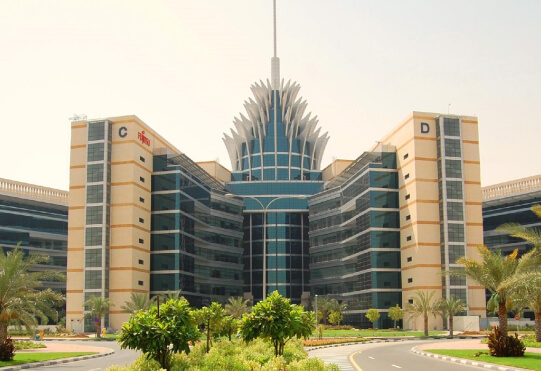Have you ever dreamed of having a small well in the Saudi desert to extract oil? Even if you have, your dream will never come true. Because you are not Saudi Aramco and you don’t have billions to invest in exploration. But Saudi Arabia has another type of oil – the new oil – which many people now refer to when talking about Data and AI. This is where you can have your own well, and even more, you can achieve that with literally zero initial investment.
This article is not only for IT companies looking for opportunities in the Saudi market. Most of the cases and examples presented can be replicated in other B2B industries. Stay with me if you want to learn about entering one of the fastest-growing markets in the world.
Over the last 18 months, we have heard several multi-billion dollar investment announcements from global corporations like Google, AWS, Oracle, SAP, Zoom, IBM, Microsoft, and many others committing to their Saudi market expansion. Why did it all happen? The Saudi government has itself invested billions of dollars into making the country a new regional, and potentially global, hub for new technologies, in which artificial intelligence and cloud computing will play a key role. They have also created investment policies aimed at attracting big global players that were previously viewing Dubai as their main business destination in the Middle East. These include regional headquarters policies, special economic and industrial zones, etc.
But what about companies that do not have billions or even millions to invest in new markets? The usual way for them to get into the Saudi market was to set up local entities, which would cost a minimum of $20k USD, then secure an annual rent for an office and relocate key sales personnel, potentially driving the initial investment up to $100k or more. Not every company has that budget, or even if they do, they may not be ready to take that risk.
The good news is, as a small or medium business owner, you can enter the Saudi market in a different way, with zero investment, without needing to establish a local company, or even travel to Saudi Arabia.
Here are four ways to enter the Saudi market with zero investment:
Unlike Europe or the United States, where the private sector dominates the IT industry, in Saudi Arabia the government is the main buyer and investor. Government entities in Saudi Arabia spend more than $11 billion USD on IT products and services, and that number is growing annually with double digits.
All government contracts, be they for IT services or other supplies in Saudi Arabia, are distributed through a centralized government procurement platform called Etimad. To access these tenders, you need to have a registered legal entity in Saudi Arabia.
But don’t rush to set up a local company! Even if you do, your physical presence does not guarantee you’ll win government contracts. There are plenty of local entities set up earlier than yours, who know the rules better and have long years of experience in the country.
Instead, I strongly advise foreign IT companies chasing their first government contracts in Saudi Arabia not to set up their own entity but to find a local partner who is already registered as a vendor with large local corporations or ministries, or better yet, find several partners to rely on. By sharing profit with them, you bear no risk, pay no upfront cost, and have much better chances to win government contracts. If you wonder how to find a partner in Saudi, you can send us a message, and our team will get in touch with you for an individual discussion.
Another way to enter the Saudi IT market is through participation in one of the startup programs. One of the biggest commitments that the government made in the last 18 months was to grow 300 AI startups in the country. They have invested $1 billion USD and started a long-term AI accelerator program called GAIA. GAIA and similar government accelerator programs like Taqadam, Misk500, Falak, and others offer a way to enter the Saudi market where the government makes your initial investment for you.
You may not consider your company a startup, but if you have built, or are building, AI applications for businesses or any other technology that you believe has potential in the Saudi Arabian market, you can separate that project team as a startup and apply for one of the Saudi government startup programs.
For example, all qualified startups for the GAIA program will receive a financial contribution of $140k USD, part of which can be used for setting up your legal entity in the Kingdom. While the program aims for 300 startups, there are only 49 startups that have passed through the program so far, meaning there are 251 seats left.
To be part of the program, you don’t have to be a Saudi national, nor do you need experience in the Saudi market. The only requirement is having a strategy for Saudi Arabia and being ready to relocate to the Kingdom for a 10-week program. If you need help with the strategy, you can send me a DM, and we will take care of it.
The main advantage of the Saudi accelerator programs run by the government or large government-owned entities is that by participating, your startup will get primary access to the biggest government clients without the need to work through a partner or go through complicated local procurement systems.
The threshold for foreign companies in these programs is currently very low, while the window of opportunity is wide open. But if you don’t act quickly, someone else will surely seize the opportunity.
One recent example of this startup penetration strategy is Memorality, an AI-product company from Germany. In February 2024, they qualified for the GAIA accelerator and got their first Saudi client – the national technology development program, which will make the Memorality product available for use to 800 Saudi startups building their no-code applications.
So if you have a scalable AI product and want to try this opportunity, check the websites of GAIA, Taqadam, and other Saudi accelerators after you finish reading this article.
Over the last 18 months, global tech giants like AWS, Google, Huawei, Alibaba, Oracle, SAP, Zoom, ServiceNow, and Microsoft have committed a total of $11 billion USD for the next five years to be invested in their new Saudi cloud regions, new cloud technologies, and artificial intelligence. Why did they do it?
Because in 2020, the Saudi government adopted its “Cloud First Policy” which mandates that any digital infrastructure capable of being migrated to the cloud must be migrated to the cloud. This rule applies to the government sector, and in Saudi Arabia, whatever the government sector does, the private sector follows.
In the coming years, billions of dollars from global companies and local giants like STC, Neom, Mobily, Zain, and others will be invested in new data centers, which both government and private institutions will increasingly use for their apps and data storage.
Most of these companies will need assistance migrating their data and apps to the cloud, setting up new digital infrastructures, and maintaining them. This is where they will need assistance from service companies. The biggest opportunity opens for service partners of the big tech companies like Google, AWS, Oracle, SAP, IBM, Microsoft, and others that have announced the expansion of their cloud services to Saudi Arabia.
Businesses that serve cloud infrastructure, sell and install hardware, manage data centers, and provide cloud security will see skyrocketing demand for their products and services in Saudi Arabia in the next few years.
To take advantage of these private sector opportunities, you may not even need a local partner like you do with government entities. Saudi private companies are more flexible and can pay you directly from overseas, and you don’t have to travel there if the client service does not require it.
What you need to enter the Saudi market this way is a strong digital profile, a compelling value proposition that accounts for local nuances, and visibility to your Saudi clients in search engines and social media.
The fourth and final way of entering the Saudi market with zero investment, applicable to both private and government sectors, is through strategic partnerships based on revenue-sharing models.
Suppose you have a well-developed AI product or solution with a proven track record in a certain industry outside Saudi Arabia. You can approach the biggest players in the same industry in the Kingdom and offer a win-win collaboration – customize your product for their customers and share the revenue.
A recent example of this is the partnership agreement between Hungerstation, the biggest food delivery app in Saudi Arabia, and Wunderman Thompson, an American creative agency based in Seattle. In January 2024, they announced the creation of a new AI feature that helps Hungerstation’s customers order food much quicker by analyzing their eye movements while they look at the menu options.
Another example is Nile, a US-based provider of Network as a Service (NaaS) solutions, which, together with solutions by STC, a subsidiary of the Saudi state-owned telecom services provider, has created a joint venture providing new services to STC customers in Saudi Arabia and across the MENA region.
Now you know how to drill your own new oil well in Saudi Arabia while saving hundreds of thousands of dollars and avoiding unnecessary risks. But beware, this unique window of opportunity won’t be open forever, so make your decisions and act upon them quickly.



